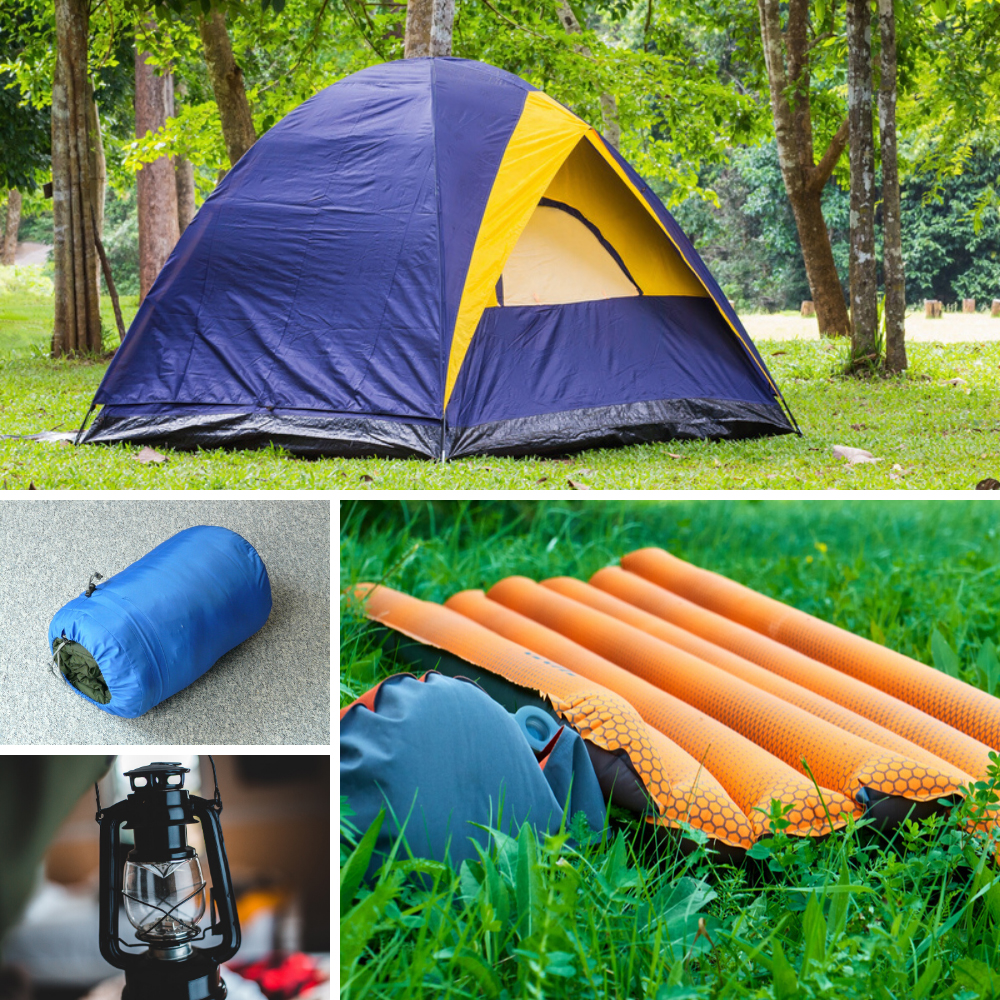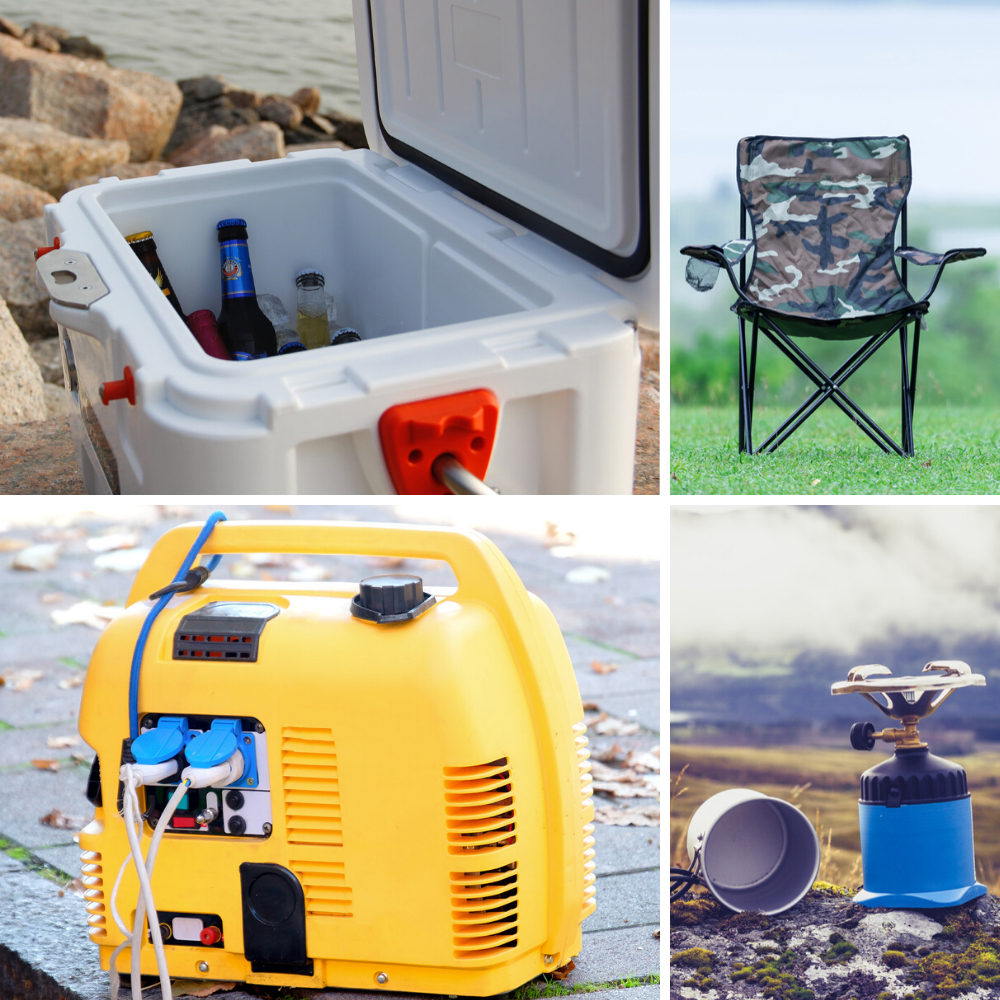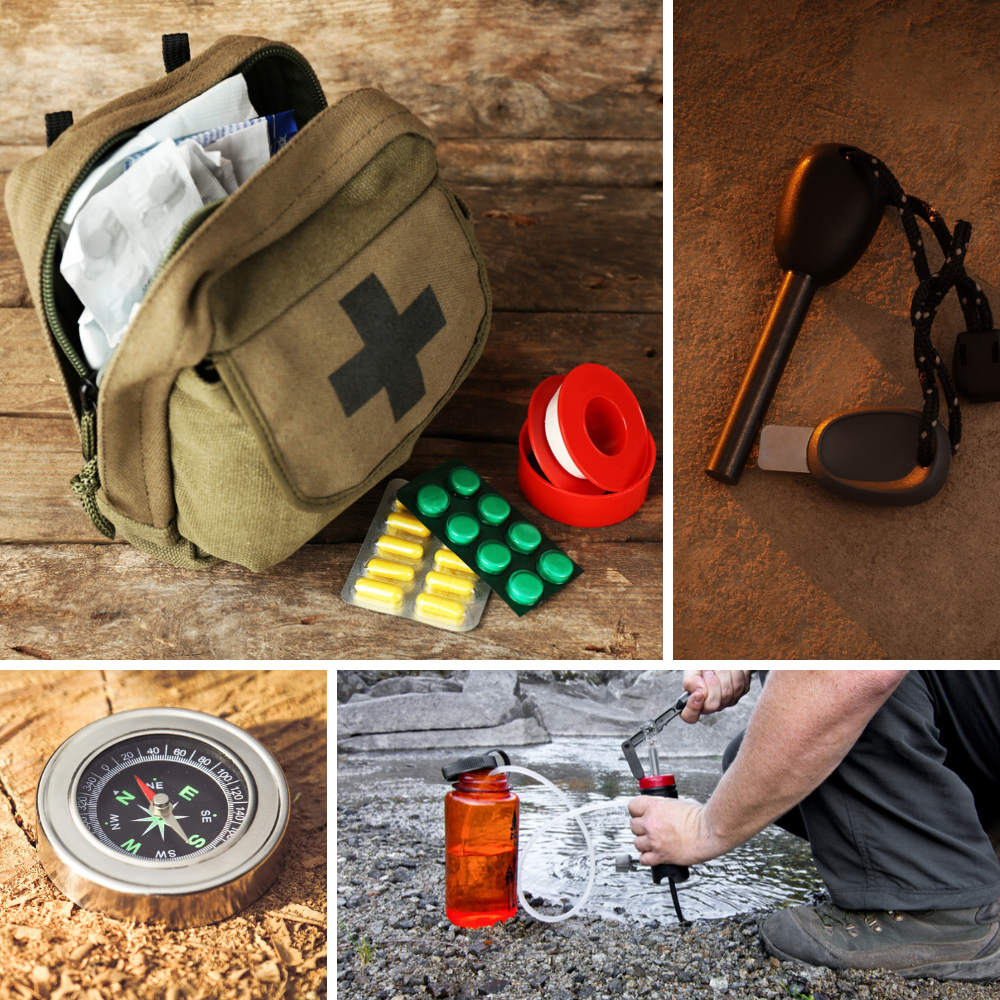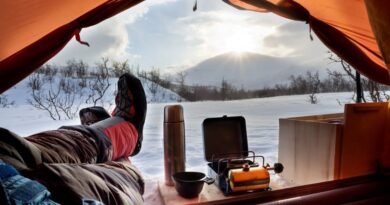Camping Essentials For A Fun And Safe Camping Trip
Camping is a great activity for the entire family. However, you have to make sure that your trip is safe and comfortable, especially if you have kids coming along.
Here’s a great guide on camping essentials including what you need and why you need them.
Camping Essentials Every Family Camper Must Have
Camping is a year-round activity for my son and me, but we are finally into peak camping season for the ‘normal’ campers. The temperatures are getting warmer, and all the plants are leafing out with bright colors.
However, not having the right gear with you can make a camping trip uncomfortable or even dangerous. I am one who always believes wilderness knowledge and experience are more important than any particular piece of equipment. And there are definitely certain items that can make life easier.
In this article, I will cover camping essentials that you should always have with you in the woods. I will also cover some camping luxury items that can allow you to rough it but still keep you as comfortable as possible. Finally, I will cover some important survival items that could save your life if a camping trip goes wrong.
Please note that buying this equipment is not enough. You need to know how to properly use each and every piece of gear before you go camping with it.
Test them out in your back yard or even in your living room. This gear is worthless if you do not know how to use it.
In addition, I will not be suggesting specific brands or models. Please take the time to do your research and purchase a product with good reviews.
If you try it and are not confident in the product’s value, return it for something else. If you do it right, these camping essentials could last you a lifetime.
Basic Camping Essentials

There are a few specific items that everyone should have on any camping trip. These items will vary greatly in size, style, and features, but they should always be included in your gear.
1. Tents
Unless you are pulling a camper or plan to sleep under the stars, a tent is a must. Tents serve three primary purposes. They block the wind, block the sun, and protect you from moisture such as rain and dew.
Also, tents give you a barrier from the cold ground and hold in body heat. They also give you a basic barrier against animals and people that might bother you at night.
You can buy small tents that are meant for just one person or get a large tent that is made for a whole family. I own four different tents for various different circumstances, but just owning one can do just fine.
Be sure you get one rated for the climate in which you are camping. For example, a three-season tent will not sufficiently keep you warm in winter temperatures.
2. Sleeping Bags
While you can get by using blankets, sleeping bags are much more effective. By completely wrapping your body, they do a better job of keeping you warm. They also roll up nicely to load into your gear or strap onto a pack.
Pay close attention to the temperature rating on your bags. I have light bags meant for warmer temperatures, and I also have a bag that will keep you warm in temperatures as low as -27F.
Unless you plan to camp in the wintertime, something in the middle is probably best. If it is rated down to 32F, you are good for spring, summer, and fall. Keep an eye on the rolled-up size and weight of your bags as there will be a wide range from which to choose.
3. Sleeping Mats
This is an item that many campers forgo. You might think a sleeping mat is about comfort. While it does help with comfort, the primary purpose is to insulate you from the cold ground.
The earth underneath you will aggressively draw out body heat if you lie directly upon it. Any decent barrier between you and the ground is good. You can get a foam mat, an air mattress, or my personal favorite which is a combination of the two.
If dealing with a foam mat, pay attention to the R-value. This is the rating that tells you how effective the insulation is. You can find the measurement on other foam products like home insulation. The higher the rating, the warmer you will be.
Use this to compare the models you are considering. Also, consider the rolled-up size and weight of the mat as this will vary a great deal.
4. Flashlights, Lanterns, Headlamps, and Glow Sticks
One of the easiest ways to get hurt on a camping trip is trying to do anything in the dark. Every person on your trip should have a reliable source of light.
Cell phones do not count as the battery could easily die. Having a lantern to light up the primary camp is good.
I personally like headlamps as they keep your hands free, but flashlights are fine, too.
Finally, glow sticks are great to put on a lanyard around everyone’s necks so you always know where everyone is even if their light is off.
5. Other Items
You should always have a knife with you as it can be useful in dozens of camping scenarios. A hatchet or folding saw can also come in handy.
Cordage like twine or 550 paracord is a good idea, as well. Finally, treatments like bug spray and sunblock are always smart.
Comfort Items

There are several items you can bring that are not a must but will make camping more enjoyable.
6. Cooking or Fire Gear
While you can bring peanut butter and jelly sandwiches, I love cooking dinner, smores, and breakfast on a campout. I typically bring items like a lighter, newspaper, and some pots and pans to do the cooking.
Depending on the location, you may also need to bring your own firewood. You can also bring a camp stove if you prefer. I have two different propane camp stoves that are easy to use and cook a great meal.
7. Quality Coolers
On many camping trips, we just drink water from the faucet or a local stream. But you may want other cold beverages or to bring refrigerated food. There are certain types of coolers that do an excellent job keeping your food and drink cold.
8. Camping Pillows
You might not think it is important, but you would be wrong. I have back, neck, and shoulder problems and have a hard time sleeping without a pillow.
It is hard to have fun on a camping trip if you don’t get a good night’s sleep. Camping pillows are inflatable, so they are super small in your pack and blow up to a good size for sleep.
9. Gas or Battery Generator
This is another item most people do not consider. If you always reserve a campsite with electrical outlets, there is likely no need for a generator.
However, in many cases, these campgrounds are full of other people. If you want some alone time, a generator can give you a supply of electricity anywhere.
This can give you light, allow you to plug in a heater or A/C unit, get your phones charged, and let you plug in a stereo for some tunes. I personally have had bad experiences with lithium-ion batteries going bad in a short period of time, so I stick to our gas generator.
I’m sure there are battery generators out there that are high quality but pay close attention to the reviews.
10. Folding Chairs
Many campgrounds have picnic tables for seating but not all of them do. Folding chairs are always a good idea.
Survival Gear

Camping trips almost always go according to plan, but the wilderness is the wilderness. If something does go wrong, you want to be ready. Getting medical assistance or waiting for rescue personnel in the wild can be difficult. Here are some items that could help you survive until help comes.
11. Ferro Rod
If your lighter dies, you may still need a fire to stay warm or to purify water. A Ferro rod is a firestarter that is waterproof, windproof, and requires no fuel.
12. Water Purification Methods
You can only survive three days without water, and it needs to be purified so you do not get sick. You can boil water, but that can take time, which you may not have.
Straw style filters and filter bottles are great as they filter out 99.999% of all waterborne pathogens. You can also use iodine tablets as these can kill pathogens, as well. I like to keep both with me.
13. Emergency Blankets
If your tent gets ripped apart or you get lost and cannot find it, emergency blankets can keep you warm. They are waterproof and reflect 90% of your body heat back to you.
Hypothermia is the #1 reason for deaths in the wilderness, so having an emergency blanket is vital.
14. First Aid Kit
With some basic knowledge, you can patch up an injured person to get by until you can get help. Do not trust that a prepacked first aid kit will have what you need.
I like to put mine together myself so I know I have the items I find most important such as antibiotic ointment, prescription medication, bandages, and allergy medication as I am highly allergic to poison ivy.
15. Other Items
Some other gear you might consider would be a map and compass so you do not get lost, gear to signal for help such as a whistle or signal mirror, and ready to eat food like protein bars or MREs.
Are You Ready?
How much of these camping essentials do you have in your camping gear collection already? Remember, you can never be too prepared when going on camping trips.
The wilderness is an unpredictable place, and you’d want to make sure you have everything you need to keep yourself and your loved ones safe.
Happy camping!
Up Next:
- 12 Essentials To Bring With When Camping
- Camping Gears | Camp Like A Genius With These 25 Additions
- 5 Survival Skills You Can Practice While Camping



